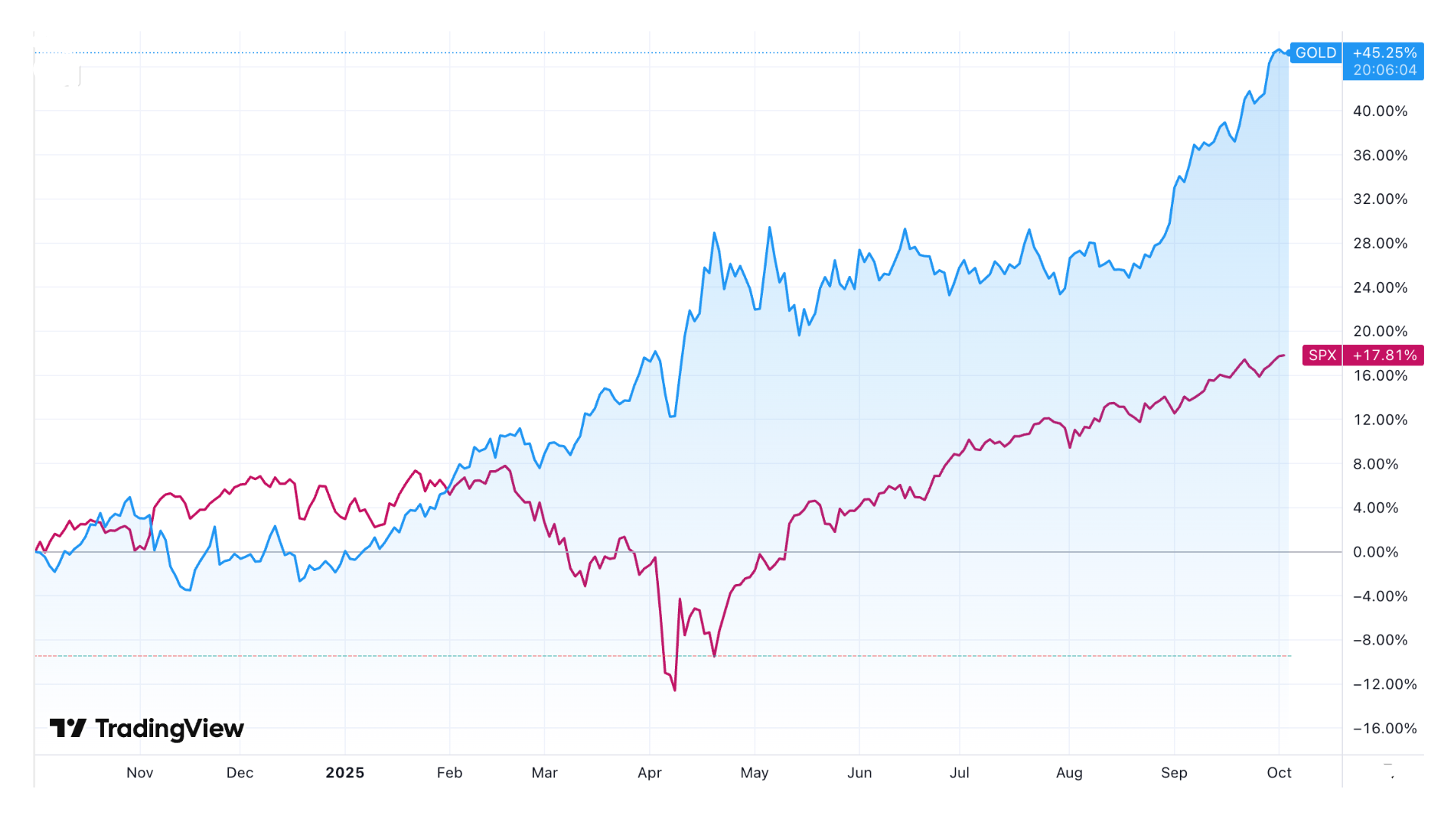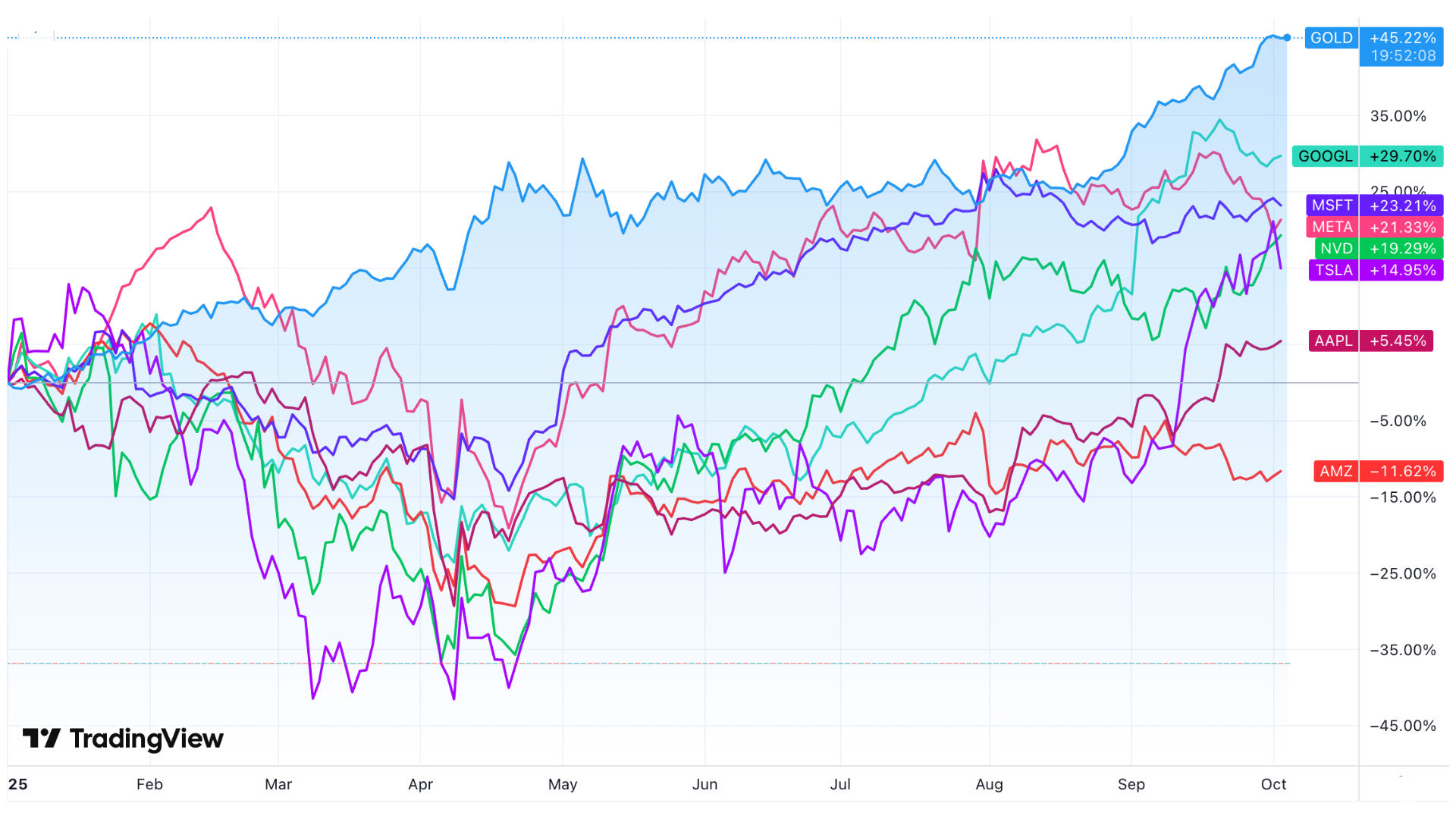Is gold the new growth stock?
Investors have a tendency to put a great deal of significance on terminology.
But what happens when the prevailing terms no longer do the job?
Gold has been called many things throughout human history, and yet none feel particularly apt right now.
After setting yet another record high this week, it might be time we start thinking about gold in a different light.
I have a suggestion - gold is the new growth stock.
It sounds silly, and it probably is, but I think many would agree the old terms - inflation hedge, safe haven, the only "real money" - no longer make much sense.
After years of stubborn inflation, it seems to finally be under control in most of the world.
And with global stock markets booming and economic growth holding firm, it's hard to see what gold is offering as a safe haven against right now.
Let's start by taking Investopedia's definition of a growth stock.
"A growth stock is any share in a company that is anticipated to grow at a rate significantly above the average growth for the market."
Sub out "share in a company" for "ounce of a precious metal", and you've perfectly encapsulated gold's performance over the last year.
Gold is currently up 45% over the last 12 months.
By comparison, the S&P 500 is up almost 17.8% and the ASX 200 is up 12.7% (net total return).

Over the last 24 months, or since the start of the stock market's most recent rally, gold is up 127 while the S&P 500 is up 74.8%.
In 2025 so far, gold is also currently around 45%.
Of the Mag 7, only Google (NASDAQ: GOOGL), up 29.7%, comes close to matching the performance of gold.
If on January 1st, I told you that the S&P 500 would be up 14.4% by early October and gave you the option of putting your money in that or gold, I can't imagine many of you would have chosen gold.
Which ones are meant to be the growth stocks again?

Given its recent price action, it's hard to argue that gold is currently fulfilling any of its historical roles.
It's not being used as a unit of commerce, it's clearly gone beyond being a simple inflation hedge, and it's missing its calling as a safe haven asset given it's now busy hitting all-time highs alongside the S&P 500 itself.
It means many of the big ASX gold miners have also hit new all-time highs this year.
Catalyst Metals is up 213% this year, Genesis Minerals is up 148%, Evolution Mining is up 128%, Newmont is up 116% and Capricorn Metals is up 114%.
It's safe to say gold trade has taken the gold medal and set the gold standard in 2025.
While uncertainty around the future of the US dollar, and a move away from US treasuries to gold amongst Asian investors, has no doubt played a big role in its price performance, there's no obvious catalyst to fall back on to explain it.
Back in April, when it looked like gold's strong rally may be reversing, Chris Leitner made the argument investors shouldn't - and don't need to - own gold.
He asked four crucial questions of gold: is it an inflation hedge? Is it a reliable safe haven asset? Is it recession-proof? Does it reduce portfolio volatility, and increase returns?
His analysis showed that the answer to all four of those questions is a fairly conclusive "no".
And yet gold is up almost 29% since that article was written.
Gold has long been associated with playing it safe, and yet it's now rewarding exuberance at a time when cautious exuberance is everywhere in markets.
It's outperformed so many other growth heavy hitters that you can make a case that even the term "growth stock" doesn't do gold justice.
Shakespeare's famous "What's in a name?" soliloquy from Romeo and Juliet posits that a name is nothing more than a label.
As Juliet says to Romeo, "that which we call a rose, by any other word would smell as sweet."
Call it a growth stock, call it a speculative asset, call it a hedge against the economic world order. To paraphrase Shakespeare, give gold whatever label you like, the returns will be just as sweet.
4 topics
1 stock mentioned

